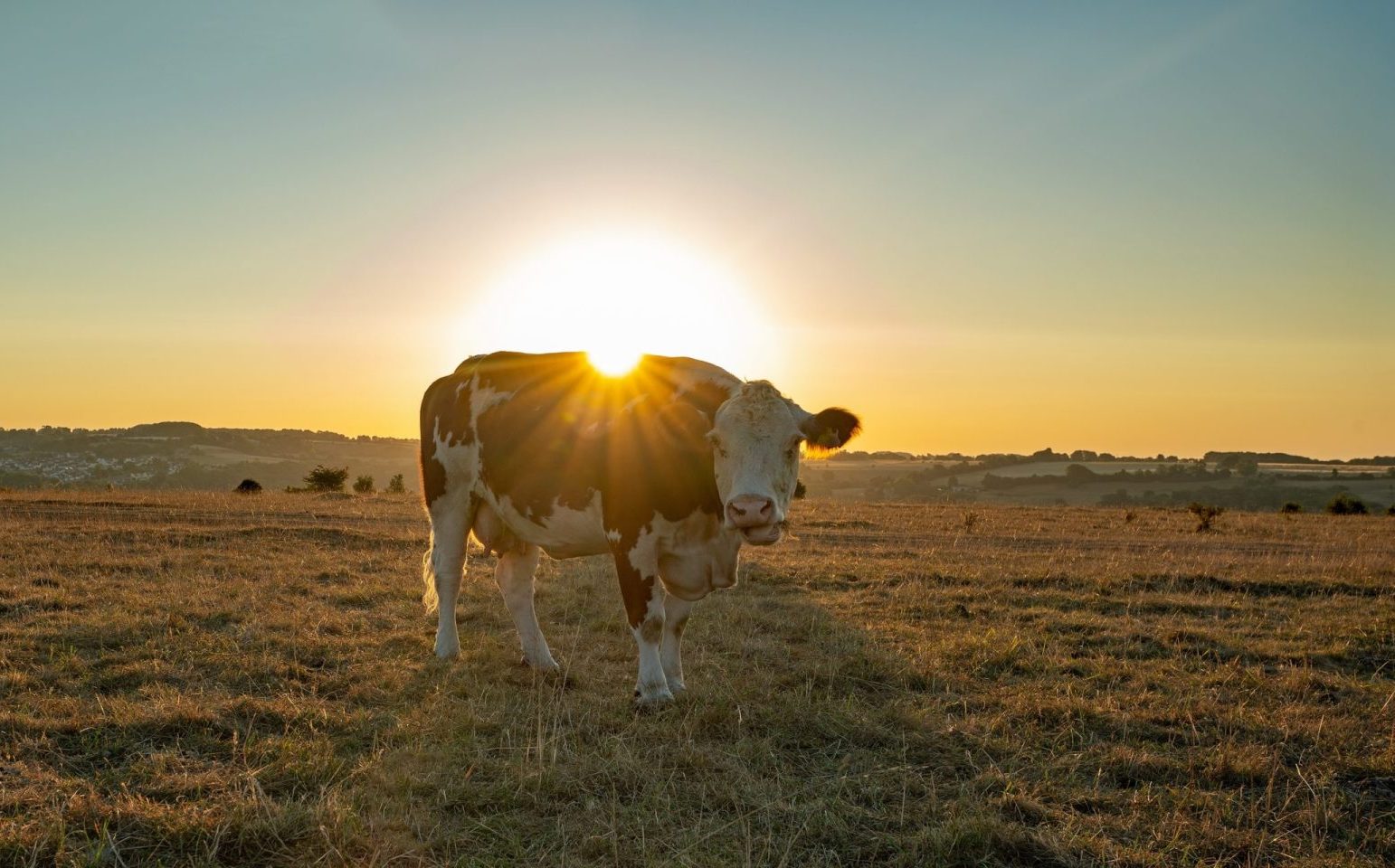Impact of Heat Stress on
Dairy Cows
Heat stress is a significant challenge for dairy farmers, as it can severely impact the well-being and productivity of cows. Dairy cows, particularly high-yielding ones, generate substantial metabolic heat, rendering them vulnerable to heat stress. When the ambient temperature combined with humidity exceeds the thermoneutral zone for dairy cows, it results in decreased feed intake, reduced milk production, and impaired reproductive performance (Baumgard & Rhoads, 2012; Collier et al., 2019).
During periods of heat stress, cows experience an increase in body temperature, leading to physiological imbalances such as elevated respiratory rates and heart rates. Along with it, the high temperatures induce oxidative stress and weaken the immune system. This physiological burden impacts milk quantity and quality by reducing milk fat and protein yields, increase the susceptibility to sanitary issues and impaired the reproduction (Chauhan et al., 2014; Alberghina et al., 2024). The economic losses associated with heat stress are severe for farmers (Florio et al., 2022).
Natural antioxidant sources, such as grape polyphenols, have shown clear efficacy in reducing the impact of heat stress on animals. Grape polyphenols must be rigorously selected and standardized to ensure proven and consistent efficacy. Nor-Feed carried out a study to evaluate the impact of supplementing grape polyphenols with a specific by-pass formula to dairy cows challenged to heat stress.


Improving Milk Production and Quality during Heat Stress Period:
Thanks to selected grape polyphenols
Grape polyphenols, with their natural antioxidant properties, present an innovative solution to combat the effects of heat stress in dairy cows. These compounds mitigate oxidative stress by neutralizing free radicals and enhancing the cows’ antioxidant defenses. Supplementing cows’ diets with rumen-protected grape polyphenols has been shown to increase milk yield and sustain milk quality during heat stress (Amato et al., 2025).
This study shows that when dairy cows were supplemented with rumen-protected grape polyphenols, they exhibited less heat-induced metabolic stress, thus maintaining higher levels of milk production compared to those without supplementation. The beneficial effects of grape polyphenols were evident, with cows showing higher levels of energy-corrected milk and sustained milk fat and protein content (Amato et al., 2025). This improvement is crucial for sustaining economic viability during warmer months.
Improving Immunity and
Animal Well-being
The immune-modulating properties of grape polyphenols also play a vital role in maintaining animal well-being under heat stress. Indeed, with grape extract supplementation, an improvement in thermoregulatory responses is observed, with a decrease in rectal temperature and reduced panting respiration.
By reducing oxidative stress, grape polyphenols help in alleviating inflammation and sustaining the cows’ immune function, which is often compromised during heat stress. Notably, research indicates a reduction in somatic cell counts in milk, which is indicative of enhanced udder health and overall immune resilience among supplemented cows (Amato et al., 2025).
Moreover, rumen-protected polyphenols have shown to fortify the innate immune response, with increased neutrophil and monocyte activity, helping cows to combat infections more effectively. This physiological resilience is vital for maintaining health and performance during prolonged periods of heat stress (Bradley et al., 1982; Engler et al., 2022).


